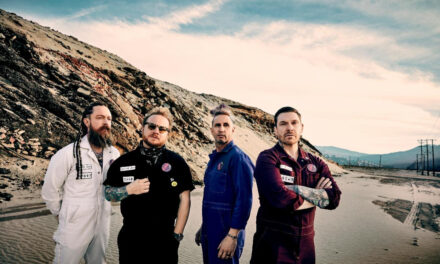This likely comes as a surprise to no one, but I am not a medical professional. I am a lay person when it comes to matters of science, medicine, and healing, and while I have a great respect for doctors and the tremendous work they do, I also like to keep an open mind to alternative methods by which people find solace for their pain and discomfort. What I absolutely cannot abide, however, is junk science and an appropriation of scientific terminology to attempt to discredit established medical practices and appeal to sensationalized, unverified methods of healing that don’t bear the weight of scrutiny or basic logic. The documentary Heal pushes just such an agenda, and the harm that causes cannot be understated.
Documentarian Kelly Noonan Gores places herself in front of the camera to lead us through a series of interviews with doctors, practitioners of alternative medicine, and the survivors of diseases that they claim were cured primarily through the power of positive thinking. Many of Noonan Gores’s experts have titles like “Divine Conduit,” “Medical Medium,” and—my personal favorite—”Neuroacoustic Wizard,” which should fairly quickly tell you that the film’s purpose isn’t so much scientific as it is vaguely spiritual, operating under the pretense that thoughts have the power to influence the mechanisms by which our bodies heal themselves. The claims Heal makes don’t just extend to the ability of good morale to aid in the healing process; there is testimony that people completely healed themselves of spinal injuries and cancer through the metaphysical properties of meditation and prayer.
What’s particularly egregious about the film’s construction is that is pretends to base its assertions on scientific findings, but in reality it only uses scientific terminology to lend credence to its wholly unsupported claims. Graphics that, in another more competent film, would provide statistical and explanatory visual aid to the science on display, instead communicate through childishly fallacious analogy and misleading diagrams that communicate no verifiable facts, only illustrate the unfounded assertions of the interviewees. This is a film that equates quantum physics with metaphysical spiritualism, posits that thoughts are energy that have impact beyond our mental health, claims that the placebo effect is actually divine intervention based on our willingness to believe in our own health, and, perhaps most shockingly, asserts that childhood illnesses are the result of some sort of unknown karmic fate, handwaving away this philosophical hole in a manner that implies that sick children chose to be so prior to being born.
Heal does actually raise some decent points about how the Western healthcare system is primarily focused on treating diseases instead of finding root causes, as well as how capitalistic influences prevent researchers from investigating those causes. However, as much as it bemoans the scientific community’s tied hands, its ultimate solution is to reject science without committing to saying that it’s actually doing so. The testimonials of the survivors of catastrophic illness are impressive, but they are unverified by the medical professionals who treated them at the time, and those people actually did receive conventional medical treatment at the time of their recovery, despite the film’s diminution of that detail. This is the kind of irrational reliance on unproven methods that gets people killed, as a distrust of medical professionals pushes people to embrace ideas founded on wishful thinking. Yes, the American healthcare system has many, many, many issues, but cloaking the morale-boosting qualities of holistic medicine in the robes of unverified science and anecdotal evidence can only serve to hurt people, even if they convince themselves they feel better as they place one foot in the grave.













